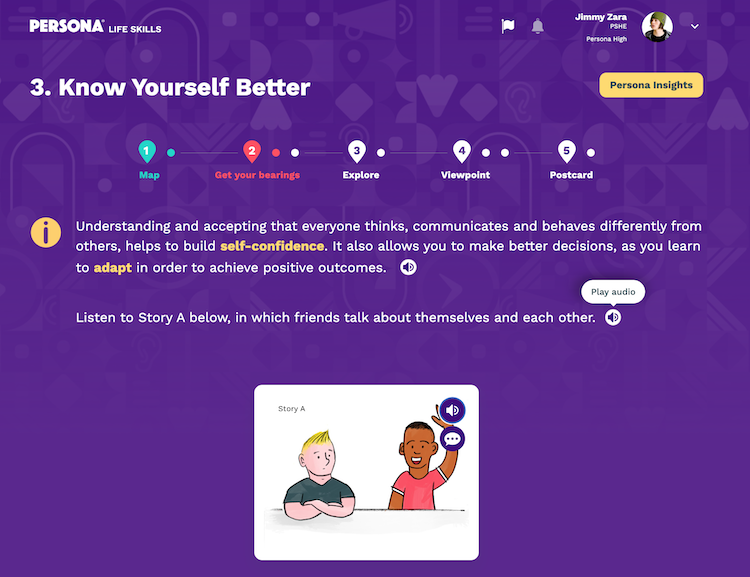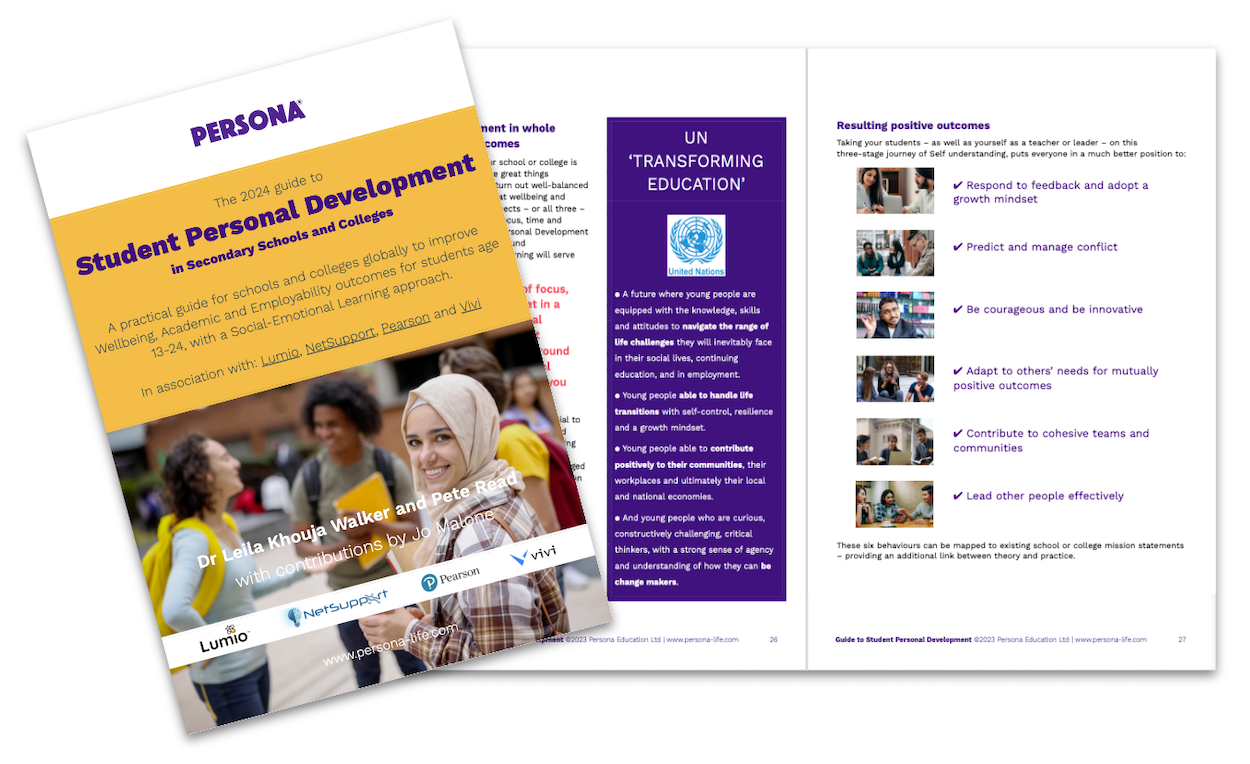Transforming Education – Lessons from the UN Education Summit

We are in the midst of a global "crisis of education" post-pandemic. The UN sees this as an opportunity for transforming education globally. We are at a pivotal moment when we can choose to build back better. We want a future where young people are equipped with the knowledge, skills and attitudes to navigate the life challenges they face.
15-Dec-22
By Jo Malone, Global Education Advisor
A crisis of education
Across four days in September 2022, thousands of education policy makers and leaders from across the globe met at the United Nations (UN) to discuss transforming education.
Why?
Because the UN asserts (along with UNESCO) that we are in the midst of a global "crisis of education", much of this exacerbated by the COVID-19 pandemic:
- Almost 150 million students (150 million!) missing in-person instruction
- 244 million missing from school
- Education budgets slashed
- Over 64% of 10 year olds unable to read
- 840 million set to leave school without any qualifications
- Costing the global economy USD10 trillion (UN)
Yes, this is a crisis.
Along with dealing with these huge and deeply complex issues, the UN sees this time as an opportunity to rethink and transform education globally. We are at a pivotal moment when we can choose to build back better post-pandemic, or go back to the way we have done things for generations. Never let a good crisis go to waste, don’t they say?
Start with the vision and purpose
In order to transform education you have to start with the vision and purpose. What is education for?
Before you answer, a little historical context. (I was, after all, a Head of History for many years.) The origins of education lie in the Ancient World. It was designed to give a privileged minority knowledge to lead the civic sphere. Following the Age of Enlightenment in Europe starting in the 17th Century, there was more emphasis on individual fulfilment, as well as skills and knowledge for nation-building (but still for the few, not for the many). The Industrial era saw education as an economic necessity, equipping people for the labour market. This continued through to the 20th Century, with a sharp focus on STEM subjects needed for economic growth, and an attempt to widen educational opportunities to harness as much talent as possible (Centre for Strategic Education).
And how about now? What is education for today? This is a provocative question which can sometimes polarise the educational community itself. But it is not a question that should only be answered by educators. The whole of society benefits – or suffers – as a consequence of how this question is answered.
According to a Jul-22 UN discussion paper:
The ultimate purpose of education is to prepare us for life. To this end, knowledge, skills, values and action for just and sustainable economies and societies are critical to achieve the SDGs and leaving no one behind.
(United Nations)
Further, the UN’s vision is for an education which is about balancing learning to 'be' and learning to live together, with our current preoccupation on learning to know and learning to do.
Driving this vision and purpose, making the case to transform education is the need to tackle these, potentially existential, current and future challenges:
- Global youth unemployment
- Rapid technical transformation across various facets of our lives
- Rise in disinformation
- Erosion of democratic values and low trust in public institutions
- Epidemic of hate speech
- Climate crisis
The argument is that without transformation in education, leading to different systems, curricula, pedagogies, innovations, assessments and funding, these huge issues will end up only being tinkered with, around the edges, and not tackled head on.
Transforming not tinkering will take not only a lot of investment, but a massive amount of courage from all of us with a stake in education, from policy makers through to practitioners.
What do the learners say about transforming education?
But what about the recipients of education? What are the learners themselves saying about the current and future state of education? What do they feel they need now and to prepare them for their futures?

.
As part of its consultation, the UN involved over 450,000 young people to create their Youth Declaration on Transforming Education. In this document the world’s youth call for:
- More agency in policy formation
- A more holistic view of education, founded in human rights and supporting healthy minds and bodies
- Systemic and long-term change
- Decolonisation of education
- Improved climate change education
- Future-proofed skills development
It would be hard to argue against any of these requests!
Personalised learning and growth mindset
Persona Education’s teaching and learning philosophy is in sympathy with what emerged from the Transforming Education summit.
We want to see and contribute to a future where young people are equipped with the knowledge, skills and attitudes to navigate the range of life challenges they will inevitably face in their social lives, continuing education, and in employment.
We want young people to be able to handle life transitions with self control, resilience and a growth mindset. We want young people to be able to contribute positively to their communities, their workplaces and ultimately their local and national economies.
We want young people to be curious, constructively challenging, critical thinkers, with a strong sense of agency and understanding of how they can be change makers.
 .
.
That is why we created Persona Life Skills, an online learning platform focused on personalised learning.
Learning that prioritising self-awareness, self-knowledge and self-love, referencing real-life scenarios can help to develop the levels of adaptability required to meet others’ needs as well as your own, leading to mutually positive outcomes, whatever the challenge.
Learn more about what we do and how we do it here – or watch our latest demo webinar recording (29 mins) to learn more about Persona Life Skills.
If you enjoyed this article you might also like:
The Future Workforce, AI, Education and Skills, Aug-22
The Road to Social-Emotional Learning Nirvana Starts With Self, Jun-22
Self-Directed SEL to Support Student Wellbeing in Remote Learning, Dec-21
Persona Education offers free access to its Persona Life Skills online learning platform for secondary schools and colleges interested in developing their pupils’ social-emotional life skills, to boost wellbeing and employability.
About the author: Jo Malone is a global education expert, with over two decades experience in teaching, e-learning, dialogic education and teacher training. A social-emotional learning (SEL) and PSHE thought-leader, she is Global Education Advisor at the Bristol based edtech company Persona Education Ltd, providing thought leadership in the global education space, leading a Community of Practice and writing for the Persona Education blog. www.persona-life.com




